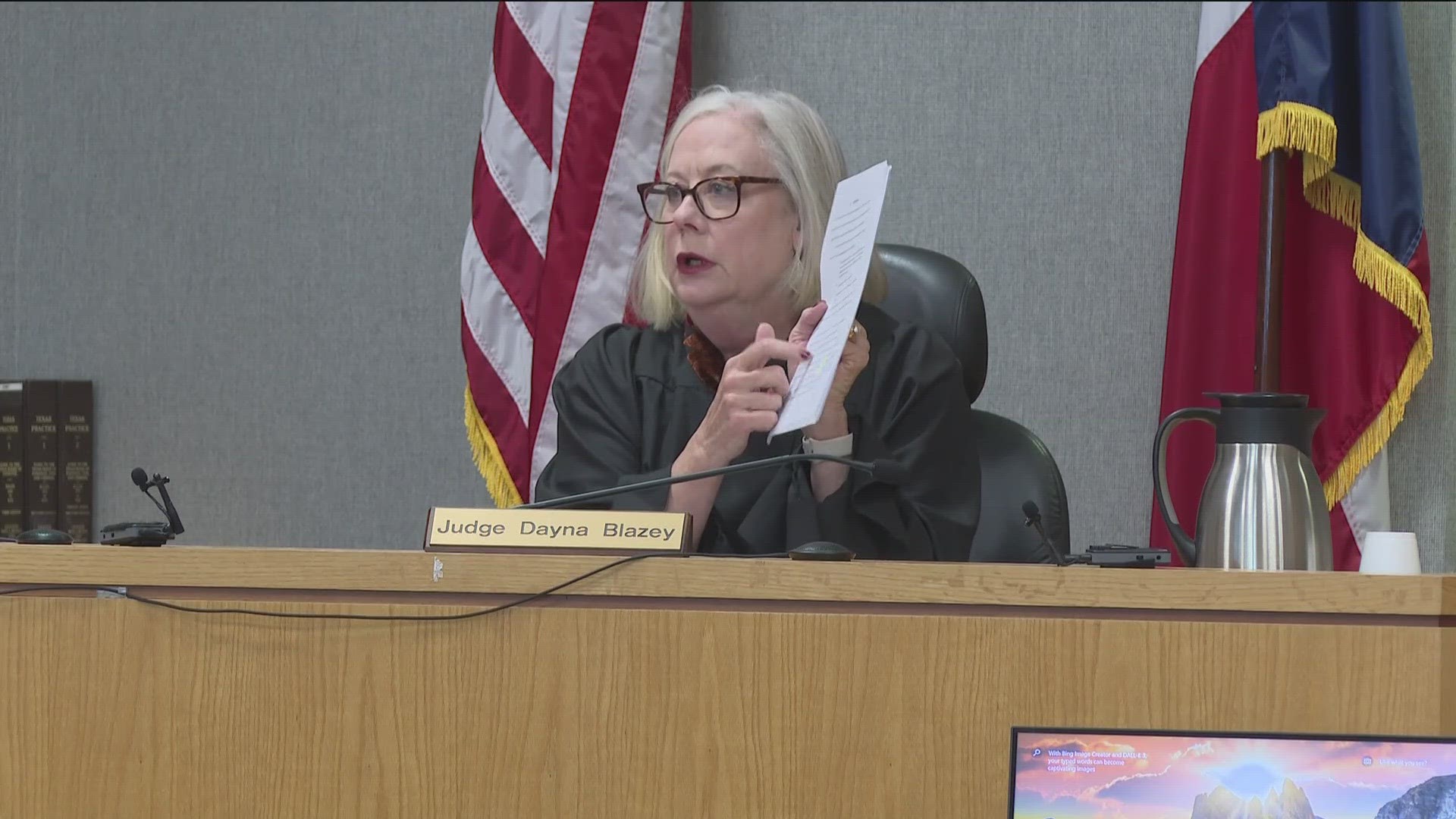AUSTIN, Texas — After four days of deliberations, the jury in the Christopher Taylor murder trial has still not decided on a verdict.
On Tuesday, Nov. 14, the courtroom doors opened twice, with the jury requesting more information and clarification.
The first time the doors opened, the jury asked for more clarification on a charge Judge Dayna Blazey gave them on Monday, saying they were confused by the wording of it. The second time the doors opened, the jurors said they were in conflict over the testimonies of three witnesses: Officer Darrell Cantu-Harkless, Det. Benjamin Hart and Officer Mitchell Pieper.
They requested to hear Cantu-Harkless' testimony when it came to the direction Ramos' Prius was moving, Hart's testimony about whether he believed he and other officers were in danger and Pieper's testimony about what he was prepared to do when Ramos started driving.
Judge Blazey has charged the jury to continue deliberations after the jurors said they have been unable to reach a unanimous decision.
Closing arguments wrapped up early last week, and the jury spent all day deliberating on Wednesday, Nov. 8, and Thursday, Nov. 9. The court took a break on Friday, and the jury resumed deliberations on Monday, Nov. 13.
At 11 a.m. on Monday, the jury delivered a note to the judge saying that it has been unable to reach a unanimous verdict. The judge then issued what is sometimes referred to as an "Allen charge" or a "dynamite charge," instructing the jurors to continue deliberating.
According to the Legal Information Institute at the Cornell School of Law, Allen charges refer to jury instructions given to a hung jury, urging them to agree on a verdict.
In the charge issued to the jury on Monday, the judge stated that if the jurors are unable to arrive at a unanimous verdict, a mistrial will be declared. The indictment against Taylor would remain pending, and another trial would be required.
"Any future jury will probably hear the same evidence which has been presented to you. The questions to be determined by that jury may be the same questions confronting you, and they may not find these questions any easier to decide than you have found them," the charge reads.
The charge states that each juror should not hesitate to re-examine their own views and to change their opinion if they decide they are wrong, but that they should not surrender their "honest belief about the weight and effect of evidence" solely because of the opinion of their fellow jurors or for the purpose of returning a verdict.
"With this additional instruction, you are directed to continue deliberating in an effort to arrive at a unanimous verdict, but only if you can do so without violating your conscience," the charge reads. "Don't violate your conscience but continue deliberating."
The jury was released for the day shortly before 5 p.m. Tuesday. Deliberations will continue on Wednesday, Nov. 15.
Background on this case
In April 2020, multiple Austin Police Department officers responded to a report about possible drug dealing in the parking lot of a southeast Austin complex. The 911 caller said that a man, later identified as Michael Ramos, had a gun – but police later confirmed they did not find a weapon.
When officers arrived at the complex, they said Ramos did not obey their commands, prompting them to use beanbag rounds on him. Then, when Ramos got into his car and started driving, Office Christopher Taylor opened fire.
The shooting led to a local outcry and calls for justice, amid ongoing outrage over the murder of George Floyd in Minneapolis.
In March 2021, Taylor was indicted for murder in Ramos' death. Earlier this year, a mistrial was granted in Taylor's case amid allegations of potential jury tampering and an inability to seat a jury.
A jury was selected in Taylor's current trial in mid-October. Opening statements were delivered on Oct. 23.

